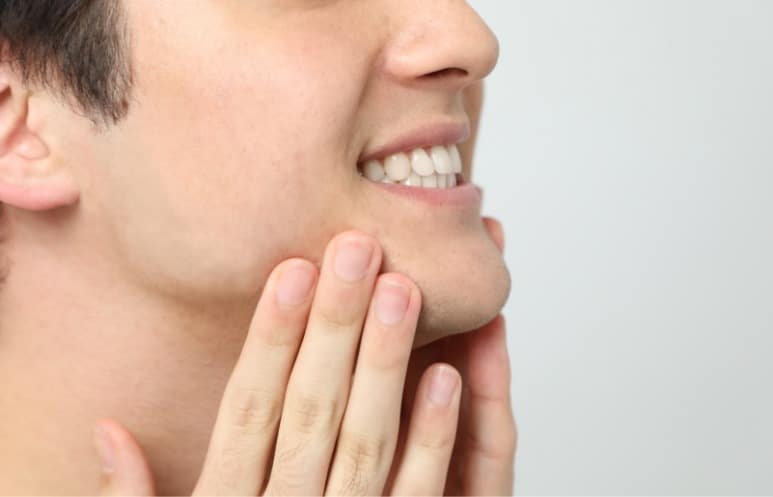Bruxism and temporomandibular joint (TMJ) disorders

Jaw pain, premature wear of enamel and teeth noticed during preventive examinations, chronic fatigue, toothaches and headaches: if you have these symptoms, you probably suffer from bruxism. Also known as nocturnal teeth grinding, this habit puts pressure on oral structures, especially the temporomandibular joints (TMJs). At the Centre dentaire Taschereau in Brossard, we can identify these conditions and propose solutions!

What is bruxism?
The consequences of bruxism
- Premature wear of teeth that can lead to deterioration of the natural crown (the part outside the gum line) or breakage of restorations and prostheses;
- Undue wear of the enamel, leading to dentine oversensitivity and aesthetic damage (visible signs of wear, structural yellowing, etc.);
- Chronic headaches;
- Pain in the teeth, jaw and neck on rising, sometimes persisting throughout the day;
- Sleep problems that make daily activities more difficult;


Temporomandibular joints, prone to certain disorders
To these consequences we can add another: disorders of the temporomandibular joints (TMJ). This term refers to the set of tissues (muscles, bones, tendons, ligaments, articular discs) that hold the maxilla (lower jaw) to the skull and allow the mouth to move properly. Whether under the pressure of bruxism or for other reasons (dental imbalances, irregular occlusion, heredity and physiognomic peculiarities, accidents), the disc can become displaced. This leads to TMJ disorders characterized by joint pain, sometimes accompanied by cracking and difficulty in opening the mouth properly.
Bruxism and TMJ disorders: possible clinical solutions
